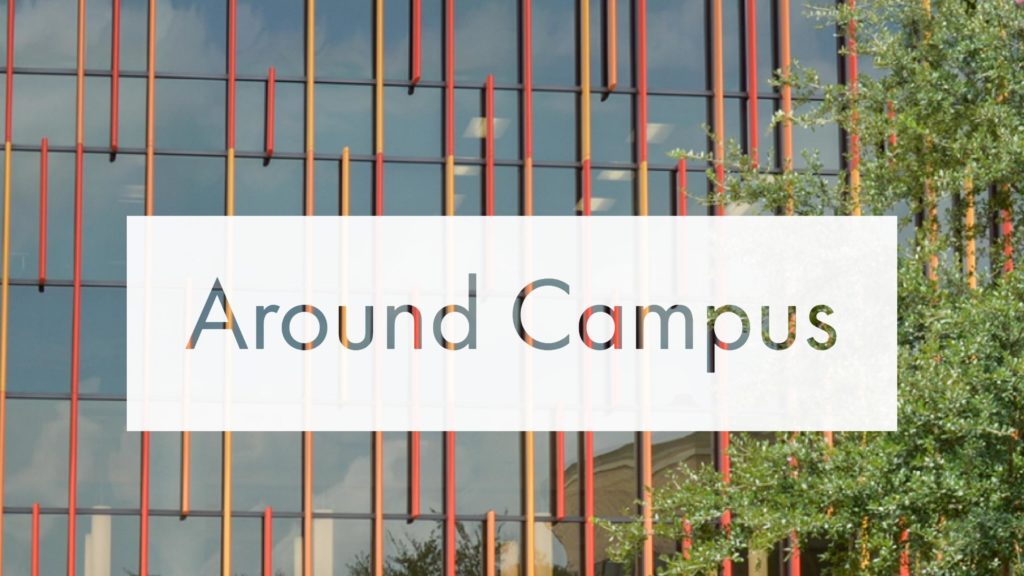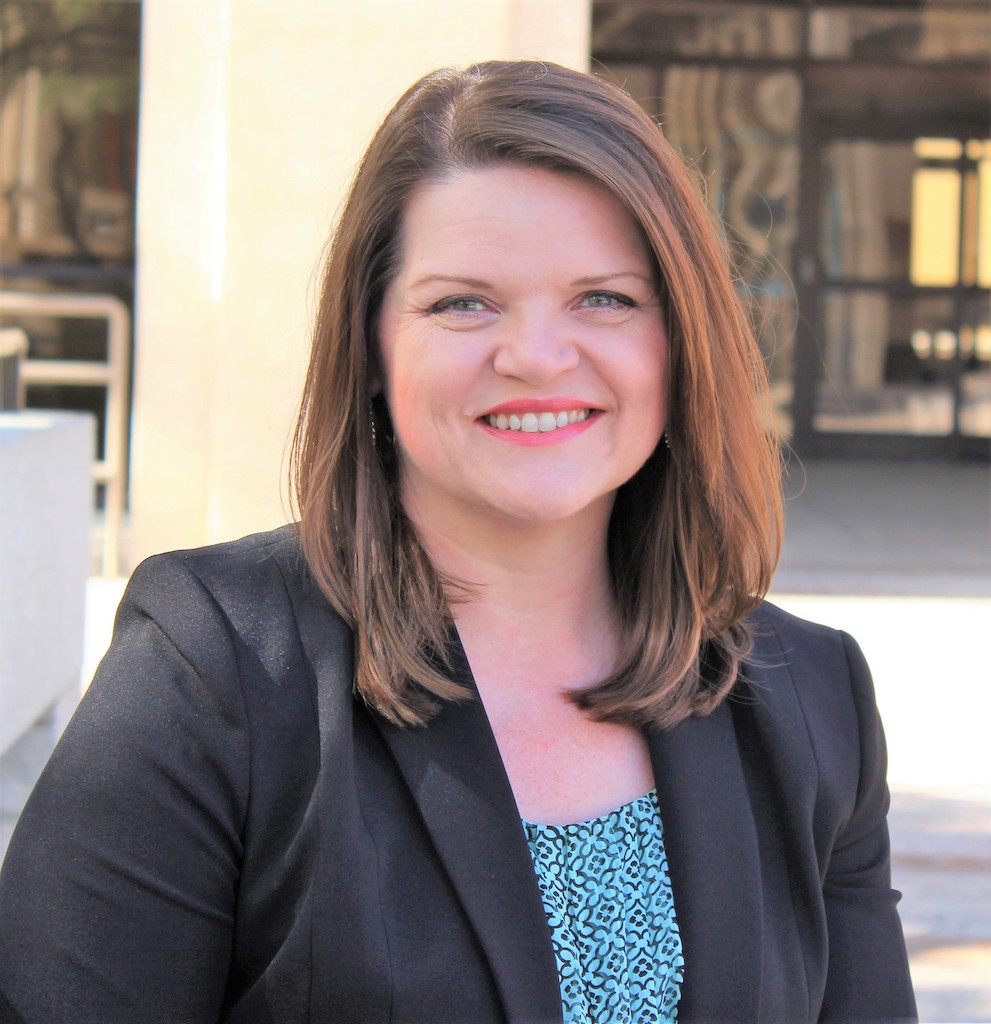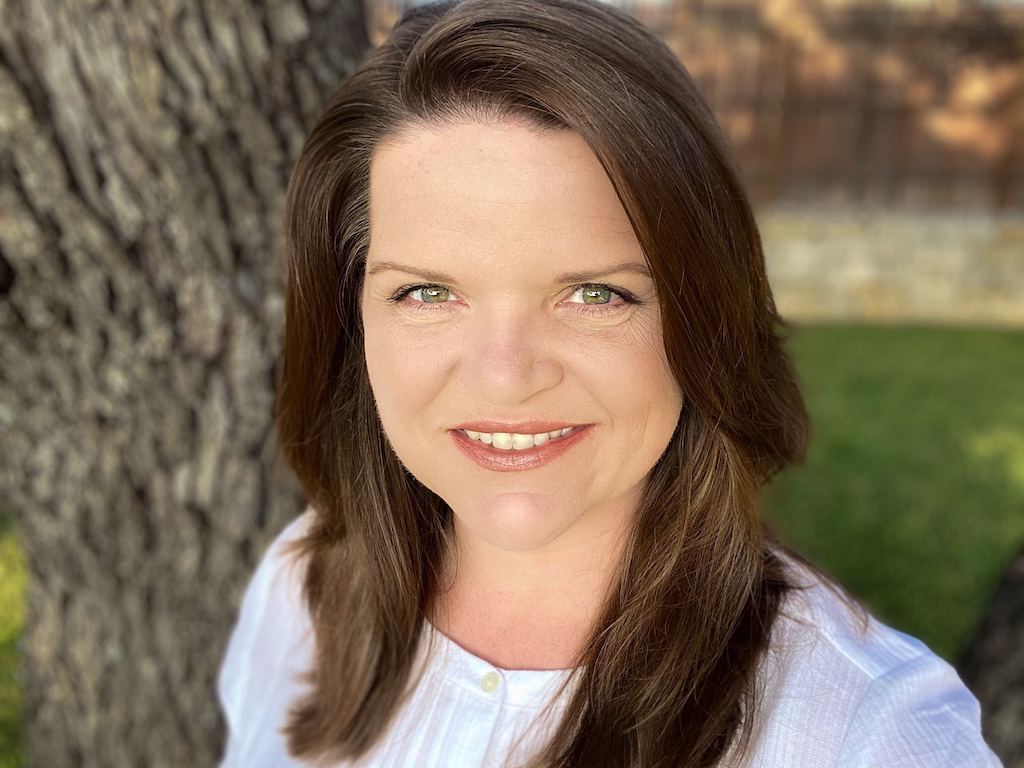Meet our own Angie Watts, a first-generation college student completing her doctorate at UTSA

 Tell me about yourself, what year are you, what program/discipline? Who is your mentor?
Tell me about yourself, what year are you, what program/discipline? Who is your mentor?
I am the Assistant Director for the Integrated Biomedical Sciences (IBMS) program here at UT Health San Antonio. I have been in my current role for almost five years and have been employed at the university for nine years. I am originally from Reliance, Tennessee, a small mountain community in Central Appalachia. I am a proud first-generation college student which means I am the first person in my family to earn a bachelor’s degree. I went on to be the first in my family to earn a master’s and soon, a doctorate. I am a fourth year student in the Educational Leadership and Policy Studies Ph.D. program at The University of Texas at San Antonio (UTSA). My mentor is Dr. Claudia García-Louis. I recently advanced to candidacy and received approval for my research proposal. I am excited to move forward with my research.
What is your research about?
My research focuses on the systems of privilege and oppression that impact graduate school experiences of rural, white, first-generation graduate students from Central Appalachia. Discussions of the Appalachian region and its people frequently invoke images of individuals who are illiterate, impoverished, hillbillies, rednecks, etc. while rich cultural characteristics such as resiliency, pride, religion, and kinship are overlooked. Negative stereotypes and deficit perspectives can have damaging and long-lasting consequences for people from this region. I seek to complicate the narrative commonly told about this geographical area and its people. Furthermore, I am working to disrupt deficit thinking and harmful stereotypes about this population that often negatively influence their academic experiences.
Why is your research important? What would you like the general public to know about it?
There is an abundance of scholarship focusing on the experiences of first-generation college students. Additionally, research on first-generation graduate students is beginning to emerge. Rural student lived experiences is also an emerging area of interest within educational research and some studies focus specifically on Appalachian students. However, there is a significant gap in literature that encompasses the population of graduate students from rural Central Appalachia who are also first-generation students. My research will make a significant contribution toward filling the gap in existing literature.
The graduate school experience is unique for first-generation students. It can be especially challenging for rural Appalachians who are the first in their family to go to college let alone seek a graduate degree. Graduate school expectations and culture are often incongruent from the culture and expectations of rural Central Appalachia. The goal of my research is to prioritize the voices of first-generation college students from rural Appalachia by identifying the unique barriers and challenges they encounter during graduate school.
My research is important because it sheds light on the ways in which first generation, rural, white Appalachian students experience graduate school and academia in unique ways. This population of graduate students experiences certain racial privileges; however, they simultaneously navigate oppression based on their regional identity, social class, and other marginalized characteristics. My dissertation study examines the ways in which those systems of privilege and oppression work in conjunction with each other to create a distinct graduate school experience. I will identify the ways in which students successfully navigate the two different worlds of graduate school and family/home. Furthermore, I will identify graduate education support needs of this population. I will offer recommendations for ways higher education administrators and faculty can support these students throughout their graduate school journey.
 What are your future plans?
What are your future plans?
I hope to continue to make positive contributions to higher education through my work as an administrator as well as a researcher. I would love the opportunity to work directly with rural, first-generation graduate students to build a support network and resources to help them successfully navigate academia.
What do you like to do outside of school?
Working full-time while pursuing a doctorate degree does not leave much free time so, when I have time available, my favorite things to do are unplug, rest, and read for fun. My husband Mark and I enjoy hiking, watching movies, and visiting the Hill Country. We also enjoying traveling and are looking forward to being able to do that again.
